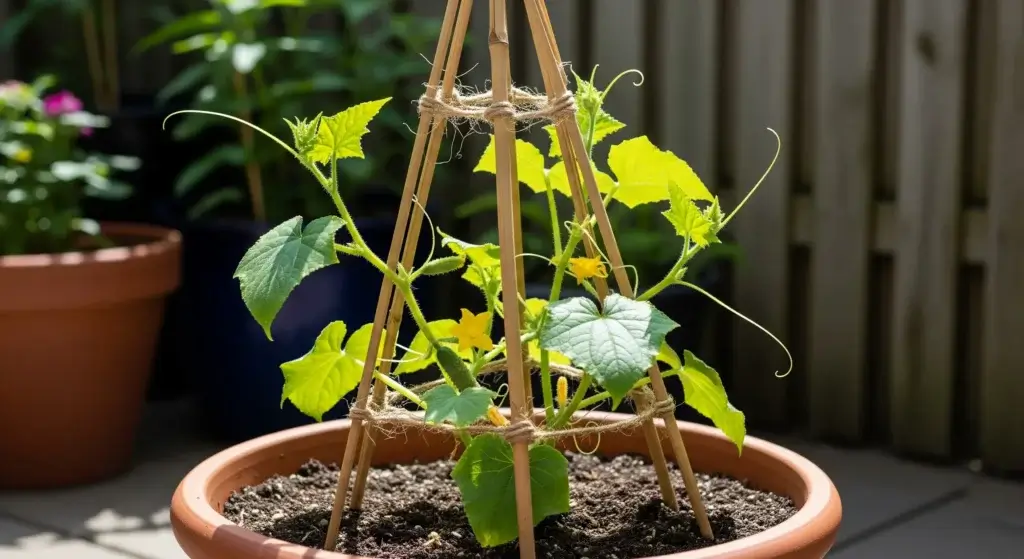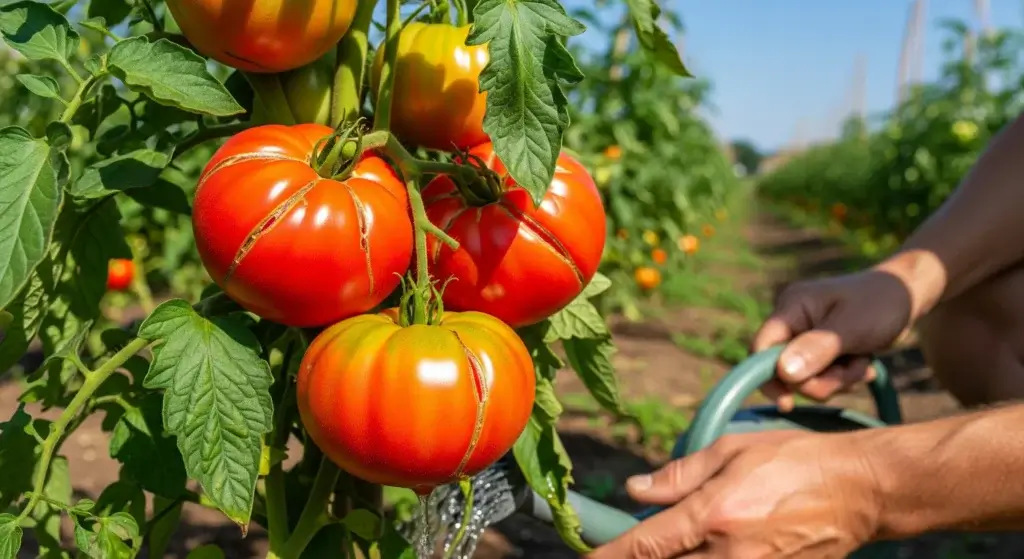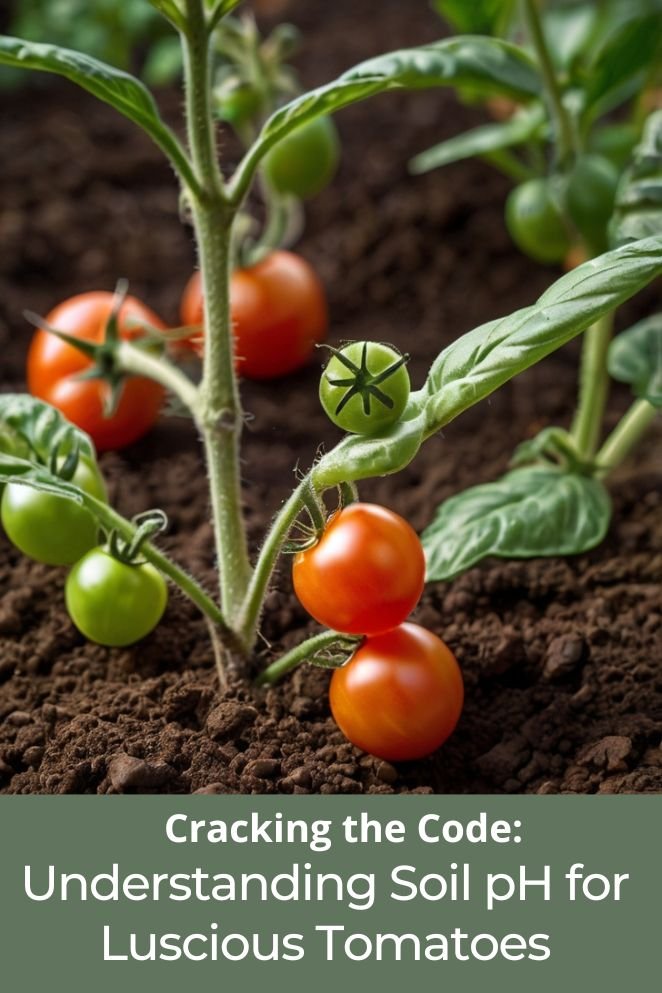
Tomatoes are one of the most popular garden vegetables, and with good reason.
They’re delicious, nutritious, and easy to grow.
However, to ensure a bountiful harvest, it’s essential to understand the importance of soil pH for tomatoes.
In this article, we’ll delve into the world of soil pH, exploring what it is, why it matters, and how to optimize it for your tomato plants.
Understanding Soil pH
Soil pH is a measure of the acidity or alkalinity of the soil.
It’s a crucial factor in determining the availability of nutrients for plants, including tomatoes.
Soil pH is measured on a scale of 0 to 14, with 7 being neutral.
A pH below 7 is acidic, while a pH above 7 is alkaline.
- Read also: DIY: A Guide to Building Your Own Tomato Plant Watering System
- Read also: A Guide: Mastering the Art of Drip Irrigation for Tomatoes
Ideal Soil pH for Tomatoes
Tomatoes prefer a slightly acidic to neutral soil pH, ideally ranging from 6.0 to 7.0.
This pH range ensures optimal nutrient uptake, supporting healthy growth and productive fruiting.
Deviations from this range, whether too acidic or too alkaline, can limit nutrient availability and impair plant development.
Regularly testing and adjusting soil pH as needed are key practices to maintain an ideal environment for tomatoes, promoting robust growth and maximizing yields in gardening endeavors.
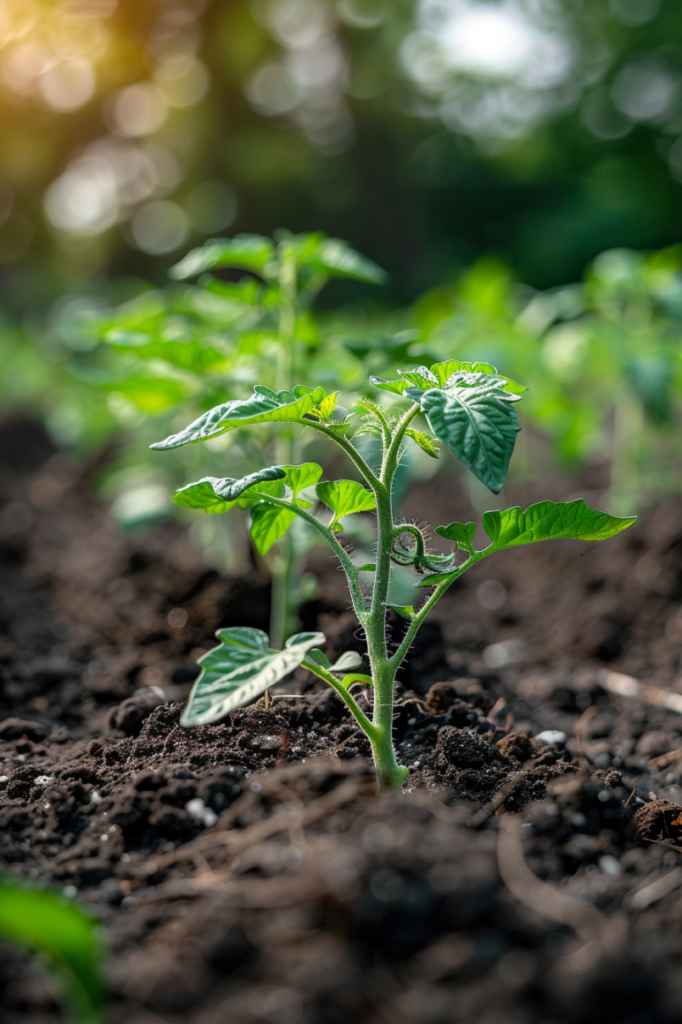
How to Test Your Soil pH
Testing your soil pH is crucial for understanding the acidity or alkalinity of your soil, which directly affects plant growth, including tomatoes.
Here’s a straightforward guide on how to test your soil pH:
- Obtain a soil testing it: You can purchase a soil testing kit from your local nursery, garden center, or online. These kits typically include a pH meter or pH test strips.
- Prepare your soil sample: Use a trowel or shovel to collect soil samples from various areas of your garden or planting beds where you plan to grow tomatoes.
- Follow kit instructions: Depending on the type of kit you have, follow the specific instructions provided.
- Test your soil pH: Use the pH meter or dip the pH test strips into the soil mixture. Follow the kit’s instructions for interpreting the results.
- Record and interpret results: Record the pH measurement obtained from the test. Compare the results to the ideal pH range for tomatoes, which is generally between 6.0 and 7.0.
- Repeat as needed: Test your soil pH periodically, especially if you notice changes in plant growth or nutrient deficiencies.
How to Adjust Your Soil pH
If your soil pH is not in the ideal range for growing tomatoes (between 6.0 and 7.0), you can adjust it using these methods:
Lime application
- Purpose: Lime is used to raise the pH of acidic soil.
- Application: Apply lime according to soil test recommendations. It’s important not to over-apply lime, as this can make the soil too alkaline, affecting nutrient availability.
- Types: There are different types of lime, such as calcitic lime (mostly calcium carbonate) and dolomitic lime (contains calcium carbonate and magnesium carbonate). Choose the type based on your soil’s needs.
Sulfur application
- Purpose: Sulfur is effective for lowering pH in alkaline soils.
- Application: Apply elemental sulfur to the soil based on soil test recommendations. It works gradually over time to acidify the soil and make nutrients more available to plants.
- Timing: Apply sulfur in advance of planting tomatoes to allow time for it to react with the soil.
Organic matter (compost)
- Purpose: Adding compost enriches the soil with organic matter, which helps to buffer pH and improve overall soil health.
- Application: Incorporate compost into the soil before planting tomatoes. It not only helps balance pH but also provides essential nutrients and improves soil structure.
- Benefits: Compost releases nutrients slowly over time, promoting long-term soil fertility and supporting healthy plant growth.
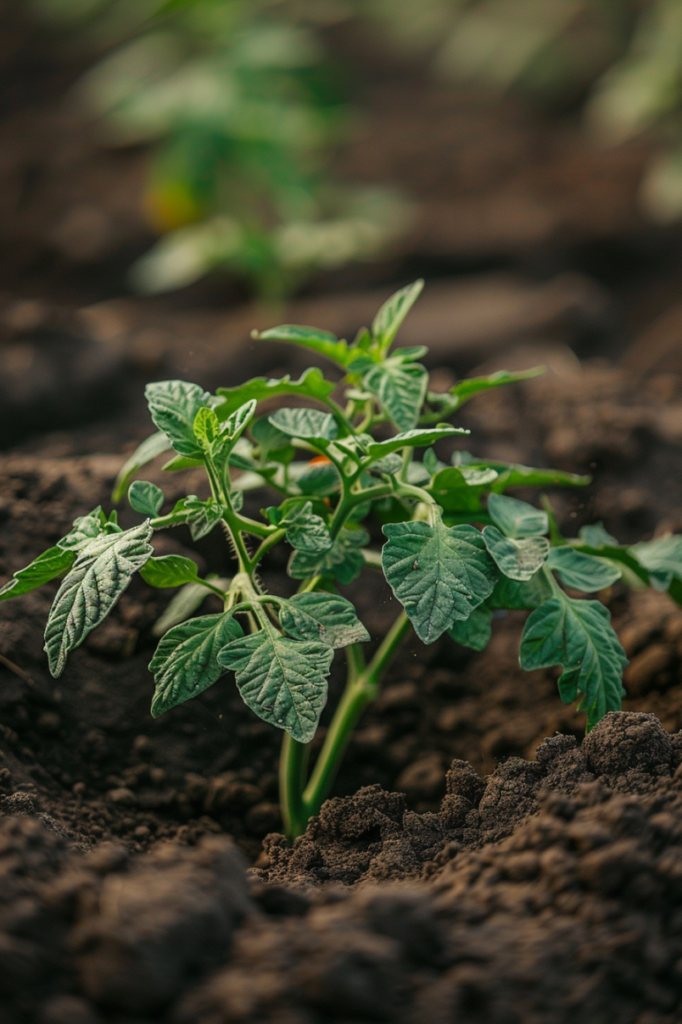
How to Maintain Optimal Soil pH
Maintaining the optimal soil pH for your tomatoes is essential for their growth, health, and productivity.
Here are some practical tips to help you achieve and maintain the ideal pH range:
Monitor your soil pH regularly
Regularly testing your soil pH is crucial to ensure it remains within the ideal range of 6.0 to 6.8 for tomatoes.
You can use a simple home testing kit or a more advanced digital pH meter to get accurate readings.
By keeping a close eye on your soil’s pH, you can take timely action if it starts to drift out of the optimal range.
Adjust your soil pH gradually
If you find that your soil pH needs adjustment, it’s important to make changes gradually.
Sudden shifts in pH can shock your plants, leading to poor growth or even damage.
To raise the pH, you can add lime (limestone) to your soil.
To lower the pH, consider using sulfur or organic materials like composted leaves.
Make these adjustments slowly over several weeks, testing the soil pH regularly to monitor progress.
Use mulch
Mulching is a fantastic way to help maintain optimal soil pH levels.
Organic mulches, such as straw, grass clippings, or wood chips, decompose over time and add beneficial organic matter to the soil.
This helps to reduce soil compaction, improve soil structure, and maintain a stable pH.
Additionally, mulch helps retain soil moisture, which is vital for healthy tomato plants.
Choose the right fertilizers
Be mindful of the fertilizers you use, as some can affect soil pH.
Avoid overusing chemical fertilizers, which can lead to acidic soil conditions.
Instead, opt for balanced organic fertilizers that provide essential nutrients without significantly altering the pH.
Always follow the manufacturer’s instructions and avoid excessive application.
Water wisely
The type of water you use can also influence soil pH.
Rainwater is generally neutral and ideal for watering your plants.
If you use tap water, be aware that it may contain minerals and chemicals that can affect soil pH over time.
Collecting and using rainwater or using a water filtration system can help maintain the desired pH level.
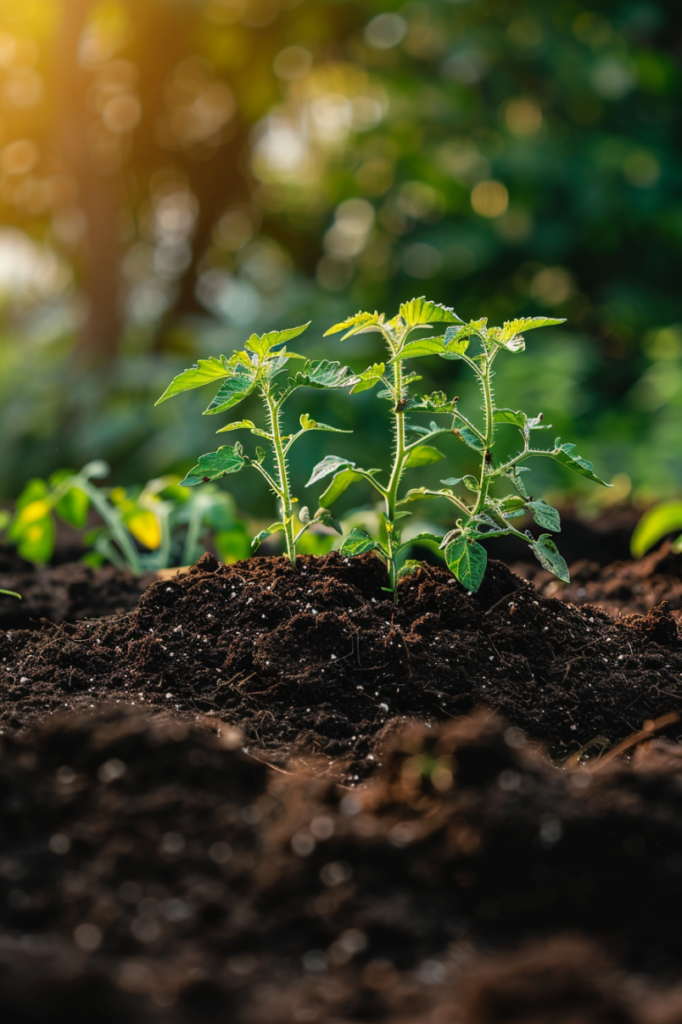
- Read also: A Comprehensive Guide: How to Revive a Wilting Tomato Plant
- Read also: Unexpected Allies: Best Companion Planting for Your Tomatoes
Conclusion
Soil pH is a critical factor in determining the health and productivity of your tomato plants.
By understanding the ideal soil pH for tomatoes, testing and adjusting your soil pH, and maintaining optimal conditions, you can ensure a bountiful harvest.
Remember to monitor your soil pH regularly, adjust it gradually, and use mulch to maintain optimal conditions.


